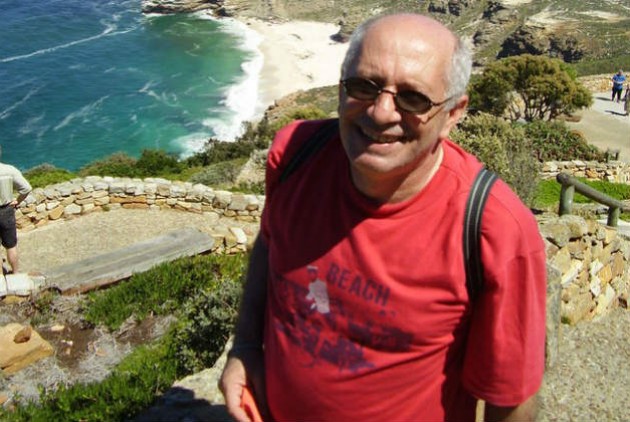“Literature, even the heavy, serious kind is addressed to a wider audience,” always stressed Anteos Chrisostomidis*. “Literature is a human creation and concerns everyone,” he insisted. I think however, that few people had the opportunity to talk with such important intellectuals of our age in the way he did.
Greeks, thanks to the TV series “The Antennas of My Age”, had the opportunity to come into contact with the thinking, the concerns and the daily lives of the most important authors of this small planet called Earth. My fellow countrymen and I, thanks to Anteos Chrisostomidis, thanks to his TV series of 78 complete interviews were able to get into homes, offices, terraces and kitchens of the most important authors and thinkers of our time. Five years, between 2007 and 2012, we walked beside lakes and through parks; we sat on benches under trees in order to ‘talk’ with them, not about their books and literature but about politics, philosophy and love. We “had dinner” with them in restaurants by the sea listening to them discussing the problems of democracy in the Western world, religious fanaticism, the problem of nationalism, the crisis of values, racism, European historical traumas, sexual freedom and so much more.
Thanks to Chrisostomidis and his colleagues’ efforts, the Greek public broadcaster possesses a valuable audiovisual material of 78 integrated programmes, a universal heritage archive which even the largest and most respected European networks such as RAI, BBC, Deutsche Welle, etc don’t have. These films are a true ‘arsenal’ of knowledge of the most beloved writers of the world. Small Greece, which for five years now has been “torturing” the planet, this small State of democracy and culture, helps a different kind of globalization with all its strength (through Anteos’ efforts); meaning the globalized knowledge and culture, offering a unique heritage to future generations.
Anteos addressed the public broadcaster (knowing very well himself that television is a medium strongly disputed by intellectuals, in the same way he did in the past when he was the first director of the Greek edition of Playboy) in order to bring into our homes the “sacred giants” of world literature whom otherwise we would have to travel dozens of kilometers to listen to in an academic speech. In other words, he managed a global conversation among intellectuals, communicated to a Greek television audience which over months was thickened and multiplied exponentially.
John Baskozos wrote in his eulogy that Anteos Chrisostomidis was “literature’s nobility”. He was for sure, as he was also the nobility of cinema, music, cooking, travel, art, culture and politics.
Anteos was a very-closed friend of mine and this August, the “Circle of Rome” lost its noble leader. Thanks to this nobility, we met, Niccola Ammaniti and his sweet, lawyer wife at his home in Athens; during a festive Christmas evening as well as eating lunches with Antonio Tabucchi in the taverns of the Greek province in some hot summers. Anteos left us this August and the “Circle of Rome” must learn to live with the unbearable thought that we will neither speak with him nor see him again. Our consolation however will be his translations** as well his narratives about John Le Carre, Daniel Kehlmann, Mario Vargas Llosa, Nadine Gordimer, Orchan Pamouk, Carlos Fuentes, Dario Fo, Ian McEwan, Amos Oz, Giasmina Chandra and so many others. Our consolation will be his own memories about Umberto Eco cooking pasta, their dip in the Italian writer’s pool, but above all, our true consolation will be his noble love for life and human matters.
My beloved Anteo…
* Anteos Chrissostomidis studied architecture in Rome, was an author and worked as a journalist, translator, and editor. He was born in 1952 in Egypt and died in August 2015 in Athens.
** Anteos Chrisostomidis was perhaps the greatest Greek modern translator of Italian literature and his work was awarded by the Italian Republic with the title of Knight of Labour, honouring his contribution in the spreading of Italian culture.






